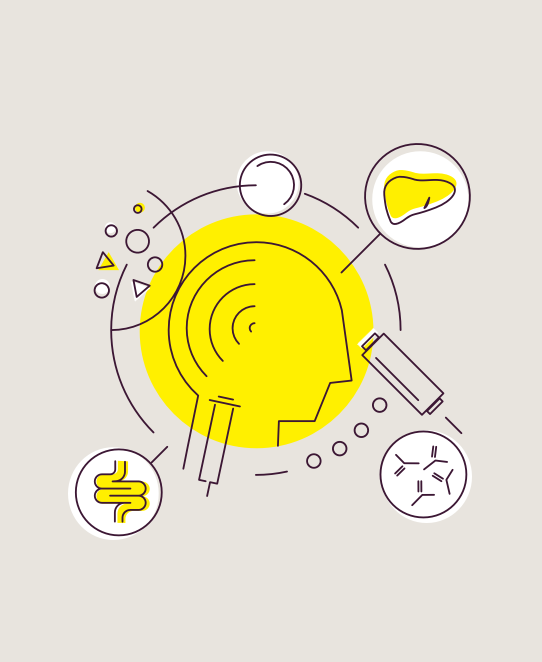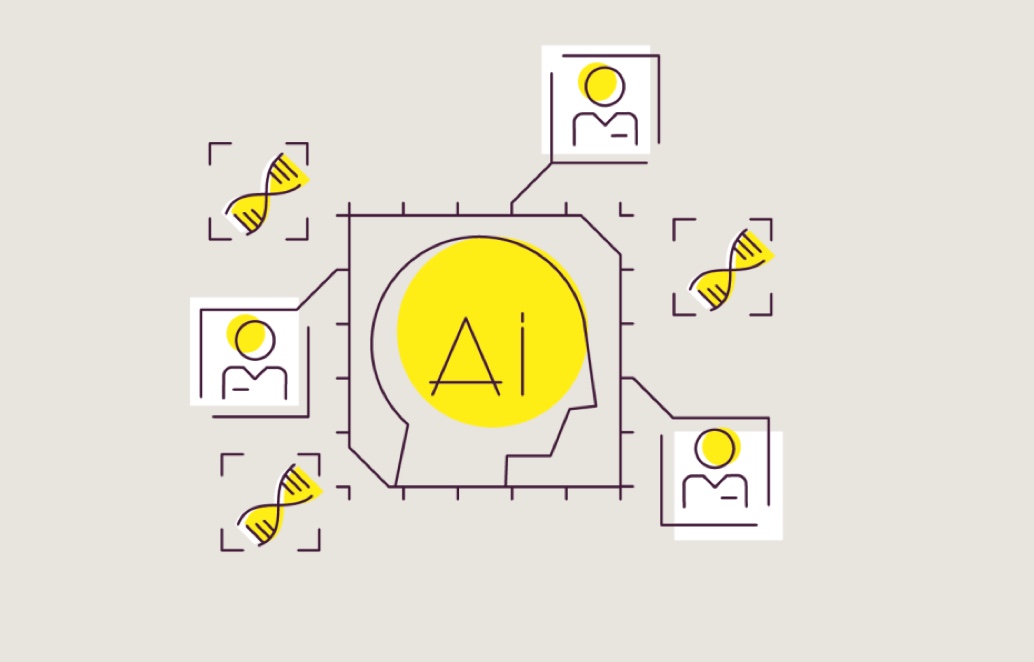Outside in Perspective
07
Connecting the dots
Discover the latest and most important news items on cancer therapy development and how they connect to Oncode Accelerator. Stay informed about the ongoing efforts in the battle against cancer within our field, and read all about advancements in the areas of patient data, AI, and organoids.

Time to take action
The incidence of early-stage cancer in people under the age of 50 has increased with nearly 80% worldwide over the past three decades, and half of all people in the Netherlands are expected to be diagnosed with cancer during their lifetime. IKNL expects the number of liver cell and bile duct cancer diagnoses to even double over the next decade. This alarming trend demands our attention and dedicated efforts to address and mitigate the growing threat of cancer.
NU, IKNL, Skipr, BMJ Oncology, Volkskrant, NRC
Treatment does not always result in prolonged life
The Netherlands Comprehensive Cancer Organisation (IKNL) highlights the increased spending on expensive cancer drugs and, based on their analysis, concludes that treatment does not always result in prolonged life. These findings highlight the importance of aligning the preclinical development process more with medical practice. Newspaper Trouw gives an overview of initiatives that are trying to address the uncertainty about how exactly a medicine will affect patients in the real world.

Dutch Cancer Agenda
November 2023 marks the launch of the Dutch Cancer Agenda (NKA). More than 100 organizations – including research institutions, patient, healthcare and civil society organizations, funders and governments – join forces and expertise in this agenda in the new Dutch Cancer Collective. Twenty goals have been set on prevention, heredity, early detection, diagnostics, treatment, control, palliative care and quality of life.
Patient-centric approach is crucial
The oncology field should pay more attention to female-male differences in cancer, conclude Dutch media outlets. The emphasis on finding effective therapies is skewed towards men, neglecting essential differences in female patients. A shift towards a more patient-centric approach is crucial to address this disparity and ensure tailored care for both men and women.
NU, Trouw, Volkskrant, NOS, NPO Radio 1, IKNL


Organoids
Unified work on organoids
Amsterdam UMC has established a specialized center to unify their work on organoids: the Organoid Centre Amsterdam University Medical Centers (ORCAU). Fourteen labs are already working together in this center.
Organoids
OrganoidXplore
Crown Bioscience, a global contract research organization (CRO) and JSR Life Sciences company, introduces OrganoidXplore: a new screening platform based on patient derived organoids which is aimed to revolutionize cancer drug development.
Read more

Organoids
Growing tumors in the lab
The Organoid Group (Hubrecht Institute) and the Rare Cancers Genomics Team (IARC/WHO) found a way to grow samples of different types of neuroendocrine tumors (NETs) in the lab. The study showed that patients with Epidermal Growth Factor (EGF) dependent NETs could be treated with inhibitors of the EGF receptor.
Artificial Intelligence
AI in healthcare
De Volkskrant writes about AI and the various possibilities it offers in healthcare. The article features an interview with Jeroen de Ridder, PI within our sister organization Oncode Institute, who sheds light on how he has developed an AI tool that helps determine a tumor type within 30 minutes.
Read more

Artificial Intelligence
Pharma and AI
Tech company IBM is providing an AI model to support the research of the German pharmaceutical company Boehringer Ingelheim. Their aim is to save time, especially at the beginning of the drug discovery process.
Read more
Patient Data
NESTOR
This year, all academic hospitals and the Netherlands Cancer Institute (NKI) will join forces to create NESTOR: a large database that consolidates data from as many people as possible with a hereditary predisposition to cancer. The project receives €3.4 million from KWF.
KWF and Radboudumc

Patient Data
Molecular and clinical patient data
Palga and Health-RI are collaborating to set up a platform for multidisciplinary consultation, with molecular and clinical data of patients who are discussed in a molecular tumor board. This platform should add great value for both patient care and scientific research into cancer pathology and new treatments.
Read more

Patient Data
Mapping tumor DNA
The GENAYA project, launched in 2022, aims to fully map tumor DNA in 1,000 adolescents/young adults (AYAs) with cancer using whole genome sequencing. This will be able to provide more insight into the genetic characteristics of tumours in these patients, which may lead to more tailored treatment. Currently, 22 hospitals have signed an agreement for participation in GENAYA, and around 100 patients have been included.
Read more